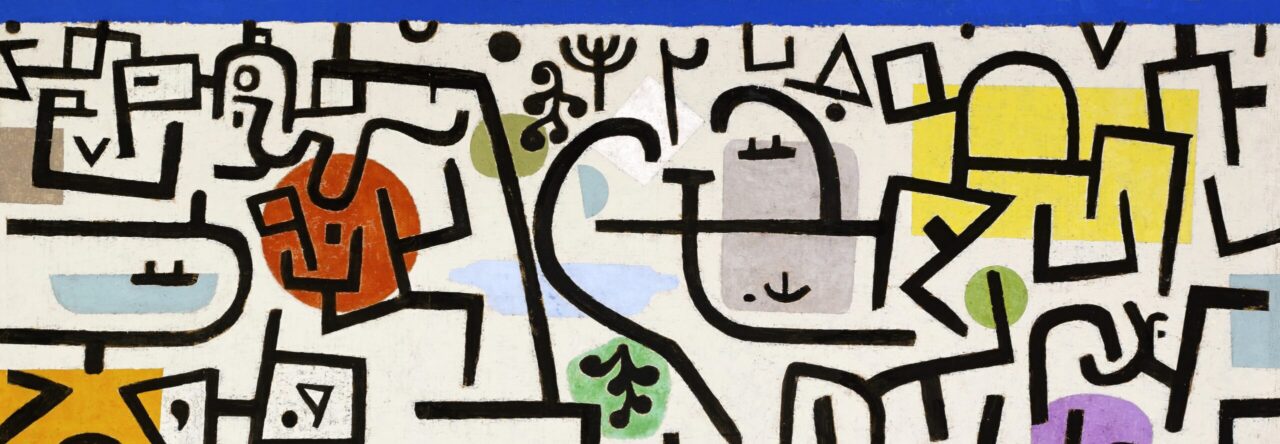Dr Inma Sánchez-García (University of Edinburgh)
‘Pasolini and Shakespeare: All the World is (not just) a Stage’
This lecture is part of a rich series of events, Pasolini and the Classics, organised by our colleague Emanuela Patti for Pier Paolo Pasolini’s 100th anniversary. See the full programme here).
When: Tuesday, 21st June 2022. 5.00-6.15pm BST
Where: Zoom. Please register here.
 In 1968, Pasolini referred to Shakespeare as an example of “politically complacent” theatre. A year before this statement, he directed a short adaptation of Shakespeare’s Othello that turned the tragic story of the Moor of Venice into a comedy – Che cosa sono le nuvole? This paper examines Pasolini’s adaptation of Othello as a film that addresses the so-called complacent dimension of Shakespeare’s drama by disrupting the codes of cinema and theatre, drawing attention to the subversive spaces of the in-between around questions of class, race, and gender. In doing so, this talk will consider the film as an adaptation of Shakespeare’s play within the context of Shakespeare’s more elusive presence across Pasolini’s artistic output, from his poetry in La religione del mio tempo to his incomplete novel Petrolio.
In 1968, Pasolini referred to Shakespeare as an example of “politically complacent” theatre. A year before this statement, he directed a short adaptation of Shakespeare’s Othello that turned the tragic story of the Moor of Venice into a comedy – Che cosa sono le nuvole? This paper examines Pasolini’s adaptation of Othello as a film that addresses the so-called complacent dimension of Shakespeare’s drama by disrupting the codes of cinema and theatre, drawing attention to the subversive spaces of the in-between around questions of class, race, and gender. In doing so, this talk will consider the film as an adaptation of Shakespeare’s play within the context of Shakespeare’s more elusive presence across Pasolini’s artistic output, from his poetry in La religione del mio tempo to his incomplete novel Petrolio.
Inma Sánchez-García is Teaching Fellow in Intermediality Studies at the University of Edinburgh, UK. Her research focuses on the intersection between literature and film, with particular attention to the afterlives of Shakespeare on screen. Her book, Shakespeare in European Cinema: Borders, Thresholds, Connections is forthcoming with Palgrave Macmillan. She has published several articles in leading peer-reviewed journals and is co-founder and co-leader of the Feminist and Queer Research workgroup at the European Network for Cinema and Media Studies (NECS).
Dr Sean Mark (Panthéon-Sorbonne University, Paris)
‘Pasolini and Pound: A poetics of crisis’
This lecture is part of a rich series of events, Pasolini and the Classics, organised by our colleague Emanuela Patti for Pier Paolo Pasolini’s 100th anniversary. See the full programme here).
When: Thursday, 19th May 2022. 5.00-6.15pm BST
Where: Project Room 1.06, 50 George Square (University of Edinburgh), and over Zoom by registering at the following link.
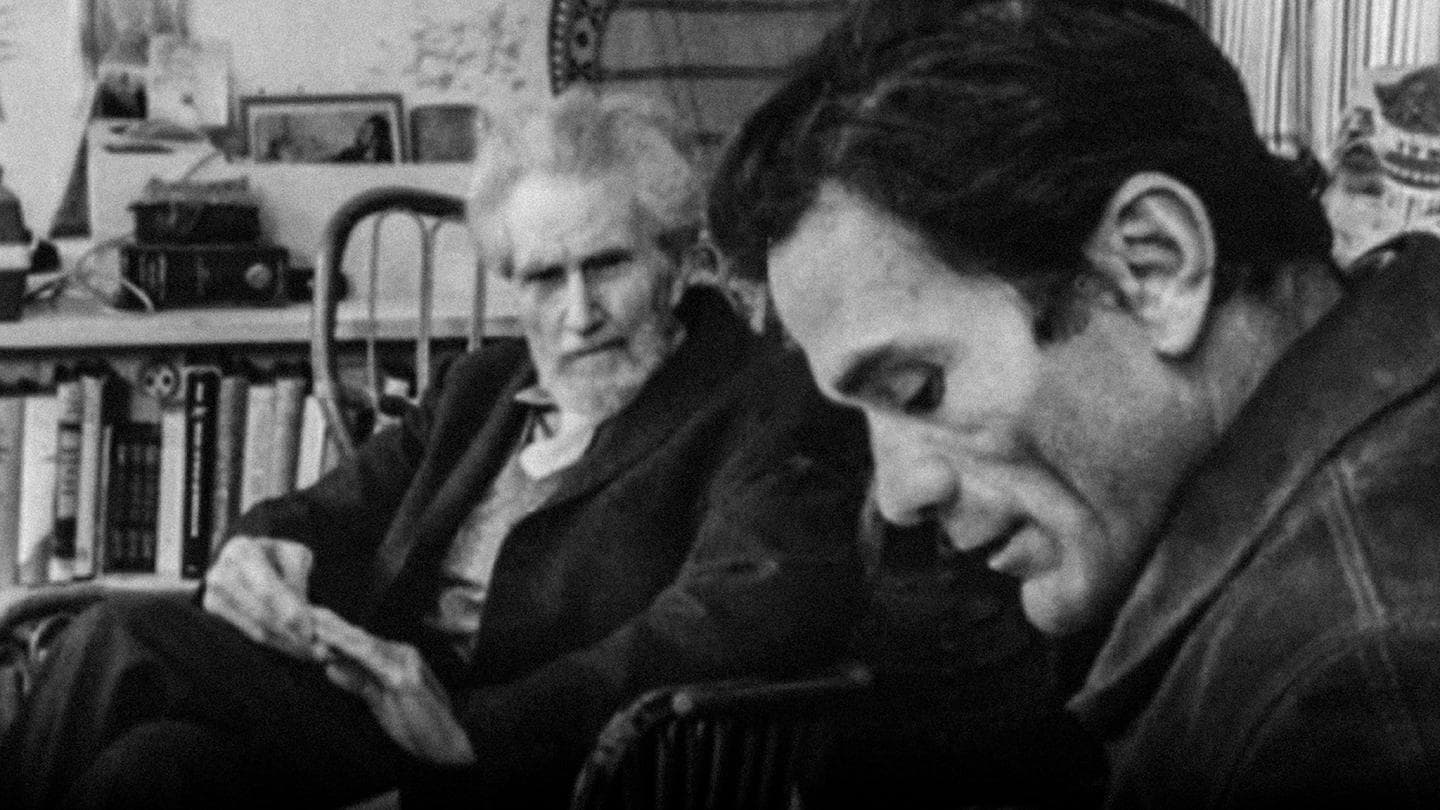 There was a time, in the mid-1950s, when Ezra Pound and Pier Paolo Pasolini could not have stood further apart, belonging to two worlds that appeared irreconcilable—a time when Pasolini described Pound as a ‘racist, a fascist’ and chastised a friend for translating a poet so tarnished by his affiliations with Italian Fascism. And yet a decade later, in October 1967, Pasolini travelled to Venice to interview Pound for broadcast on national television in an event conceived as a clash of opposites. Aside from their political differences—one was a lifelong Marxist, the other a one-time propagandist for the Fascist regime—the 45-year-old Pasolini was at the height of his creative powers, while Pound, at 82, was silent and stuck. This would prove to be Pound’s final interview, and before the cameras he broke the silence that characterised his last decade to discuss his work and legacy. Even more unexpectedly, the American poet would go on to acquire a prominent presence in Pasolini’s work. Interrogating the reasons behind Pasolini’s reconsideration of Pound, this lecture will take the 1967 interview as a prism through which to trace a dialogue, both implicit and explicit, between these poets, across decades, media, and cultures.
There was a time, in the mid-1950s, when Ezra Pound and Pier Paolo Pasolini could not have stood further apart, belonging to two worlds that appeared irreconcilable—a time when Pasolini described Pound as a ‘racist, a fascist’ and chastised a friend for translating a poet so tarnished by his affiliations with Italian Fascism. And yet a decade later, in October 1967, Pasolini travelled to Venice to interview Pound for broadcast on national television in an event conceived as a clash of opposites. Aside from their political differences—one was a lifelong Marxist, the other a one-time propagandist for the Fascist regime—the 45-year-old Pasolini was at the height of his creative powers, while Pound, at 82, was silent and stuck. This would prove to be Pound’s final interview, and before the cameras he broke the silence that characterised his last decade to discuss his work and legacy. Even more unexpectedly, the American poet would go on to acquire a prominent presence in Pasolini’s work. Interrogating the reasons behind Pasolini’s reconsideration of Pound, this lecture will take the 1967 interview as a prism through which to trace a dialogue, both implicit and explicit, between these poets, across decades, media, and cultures.
Sean Mark is Teaching and Research fellow at Panthéon-Sorbonne University in Paris. After graduating from the University of Milan and University College London, he completed a PhD in comparative literature at the universities of Tübingen, Bergamo and Brown on a fellowship from the European Commission, and in 2018–19 was British Academy postdoctoral fellow at the British School at Rome. He has published in The Edinburgh Companion to Ezra Pound and the Arts, Modernism and Food Studies, and has essays forthcoming in The Ezra Pound Studies Biennial, Sillages Critiques and Modernism/modernity. For Chelsea Editions Press, he has edited and translated two books by contemporary Italian poets (Adam Vaccaro’s Seeds and Antonio Sagredo’s Poems), and his translations have appeared in the Italian Poetry Review and In Verse. His first monograph, Pound and Pasolini: Poetics of Crisis, is forthcoming with Palgrave Macmillan.
Ben Bollig (University of Oxford)
‘Book Talk: Moving Verses and The Poetry-Film Nexus’
When: Tuesday, 29 March 2022 | 18:00 – 19:30 BST Where: Online (Zoom)
Ben Bollig (University of Oxford) will discuss two recent books in conversation with Fiona Mackintosh (University of Edinburgh), Marion Schmid (University of Edinburgh) and David M.J. Wood (Universidad Nacional Autónoma de México) The talk with revolve around his recent monograph Moving Verses. Poetry on Screen in Argentine Cinema (Liverpool UP, 2021) and the co-edited volume (with David M.J. Wood) The Poetry-Film Nexus in Latin America. Exploring Intermediality on Page and Screen (Legenda, 2022). About the speakers Ben Bollig is Professor of Spanish-American Literature at the University of Oxford. Ben will be joined by:
- Co-editor of the Poetry-Film Nexus, David M.J. Wood (Investigador titular, Instituto de Investigaciones Estéticas, Universidad Nacional Autónoma de México)
- Fiona Mackintosh (Senior Lecturer in Latin American Literature, University of Edinburgh)
- Marion Schmid (Professor of French Literature and Film, University of Edinburgh)
The talk will be introduced by Jessica Gordon-Burroughs (Lecturer in Latin American Studies and Visual Culture, University of Edinburgh). It is sponsored by Spanish, Portuguese, Latin American Studies (SPLAS), the Centre for Contemporary Latin American Studies (CCLAS, University of Edinburgh) and the Intermediality MSc and Research Strand (University of Edinburgh).
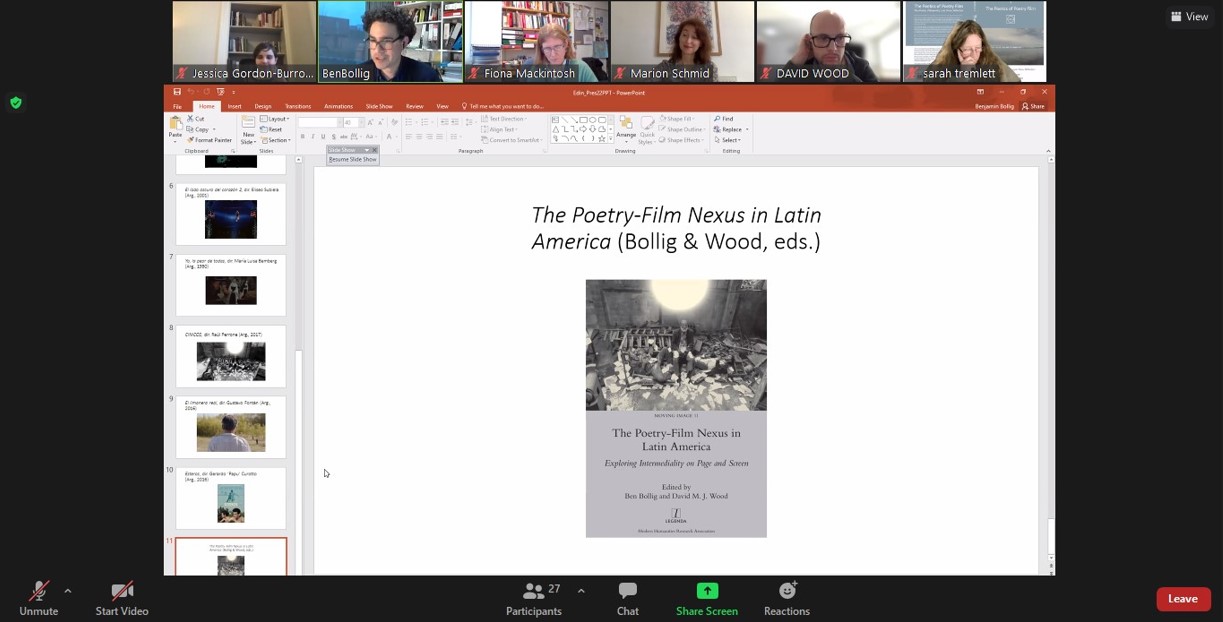
Pascale Aebischer (University of Exeter)
‘The Haunted Stalls: Liveness and the Absent Audience in Pandemic Shakespeare’
When: Monday, 28 March 2022 | 17:30 BST Where: Online (Zoom). The Covid-19 pandemic has accelerated the trend towards digital dissemination of stage productions of Shakespeare and made-for-digital live productions which started to transform how audiences in much of the Western world accessed Shakespeare even before North American and European theatres went dark in March 2020. One of the challenges posed by productions staged and broadcast during the pandemic was how to reimagine the role of the audience in relation to the performers when actors are performing to an empty auditorium and how to negotiate the relationship between what is present and what is absent, between the alive and the dead. 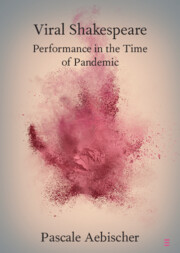 This paper will focus on three productions staged during lockdown: Dimiter Gotscheff’s Hamletmaschine, performed by live actors alongside footage of the late Gotscheff for a performance broadcast from the Deutsches Theater Berlin in April 2020; Johan Simons’ production of Hamlet at the Schauspielhaus Bochum recorded for the Berliner Festspiele Theatertreffen of May 2020, and Zoe Seaton’s Zoom production of Macbeth, performed live for the Belfast International Arts Festival in October 2020. It will investigate how these productions activated the space of the empty auditorium in order to make present the absence of their audiences, turning the empty theatre into a metaphor for the precariousness of aliveness and of theatrical performance in the midst of an environment marked by absence, contagion and death.
This paper will focus on three productions staged during lockdown: Dimiter Gotscheff’s Hamletmaschine, performed by live actors alongside footage of the late Gotscheff for a performance broadcast from the Deutsches Theater Berlin in April 2020; Johan Simons’ production of Hamlet at the Schauspielhaus Bochum recorded for the Berliner Festspiele Theatertreffen of May 2020, and Zoe Seaton’s Zoom production of Macbeth, performed live for the Belfast International Arts Festival in October 2020. It will investigate how these productions activated the space of the empty auditorium in order to make present the absence of their audiences, turning the empty theatre into a metaphor for the precariousness of aliveness and of theatrical performance in the midst of an environment marked by absence, contagion and death.
Pascale Aebischer is Professor of Shakespeare and Early Modern Performance Studies. She specialises in the history of the performance of early modern drama (including Shakespeare), with an emphasis on 1580s-1700 and 1980s-present. She has a particular interest in bodies and performance technologies (from candlelight through social media to ‘live’ theatre broadcast and digital performance). These interests are reflected in her teaching, which focuses on early modern – Restoration theatrical cultures and performance practices, Shakespeare, and present-day performance on stages and screens. From 2021 to 2023, Pascale Aebischer is leading the coordination of the AHRC’s Covid-19 research portfolio as Principal Investigator of The Pandemic and Beyond: the Arts and Humanities Contribution to Covid Research and Recovery.
Inaugural Workshop of the Edinburgh-Meiji Research Partnership
‘Intermedial Encounters Between Image, Music and Text With and Beyond Roland Barthes’
When: Wednesday, 16 March 2022 | 9:00 – 12:00 GMT Where: Hybrid. Online and In-person | Medical School, Doorway 1 | Sydney Smith Lecture Room (2nd Floor, Room 2.520) | EH8 9AG. The University of Edinburgh, Edinburgh.

“Image, Music, Text” is the name of the famous English-language essay anthology written by Roland Barthes and selected and translated by Stephen Heath in 1977. In these pieces, Barthes asserts the importance of moving from author to reader and work to text via a series of reflections on and semiological investigations of film stills, musical and theatrical performances, photographs and written texts. Taking example from Barthes’s intermedial practice and critical essays contributing to the theoretical framework of intermediality, this workshop will explore a diverse range of relationships between images, music and texts within and beyond the scope of Barthesian analyses.
Schedule
9.00 – 9.05: Welcome and Introduction, Fabien Arribert-Narce (University of Edinburgh)
9.05 – 9.35: Alex Watson (Meiji University)
‘Intermedial Post-Romanticism: W. G. Sebald’s Ruins of Empire in Austerlitz (2001)’
9.35 – 10.05: Alexandra Smith (University of Edinburgh)
‘The Role of Music in Lev Tolstoy’s novella Childhood’
10.05 – 10.20: Coffee break
10.20 – 10.50: Rumiko Oyama (Meiji University)
‘On the Relations between Image and Writing: How writing can affect visual semiosis in multimodal texts’
10.50 – 11.20: Matthis Hervieux (University of Edinburgh)
‘Intermedial Aspects of Roland Barthes’s Encounter with Bunraku in L’Empire des signes’
11.25 – 11.55: Xingtong Zhou (University of Edinburgh)
‘The Affective Pleasure in Photobiography: Gazes and Mental Images in Roland Barthes and Eileen Chang’
11.55 – 12.00: Concluding remarks, Marion Schmid (University of Edinburgh)
DELC Research Seminar Series: Intermediality
Speakers – Dr Emanuela Patti (Italian, DELC, University of Edinburgh) and Dr Inma Sánchez-García (Intermediality Studies, DELC, University of Edinburgh)
Title – Intermediality
Series Theme – Decolonising Minds and Methods
Welcome: Professor Federica G. Pedriali (Director of Research, DELC, University of Edinburgh)
Respondents: Associate Professor Gian Maria Annovi (University of Southern California) and Professor Julie Sanders (Newcastle University)
Roundtable: Yue Zheng, Surina Bao, Sirui Xu, Kristen Barrett, Rome Godwin and Yamini Char (graduate students, MSc in Intermediality Studies, DELC, University of Edinburgh)
Event Moderator: Federica G Pedriali (Italian, DELC, University of Edinburgh)
How can intermediality help us reconsider the borders of specific media forms such as film and literature? How can intermedia processes, such as fusion and expansion of media, become ideological tools and enact discourses of decolonisation? While traditional methods and approaches have focused on the ‘purity’ of form, intermediality foregrounds questions of hybridity by facilitating cross-media and cross-disciplinary exchanges. In this double talk, we will address these questions examining how two Shakespearean tragedies – Othello and Romeo and Juliet – have been appropriated and transposed across media, languages, and cultures by two modern film directors: Pier Paolo Pasolini and Jiří Weiss. 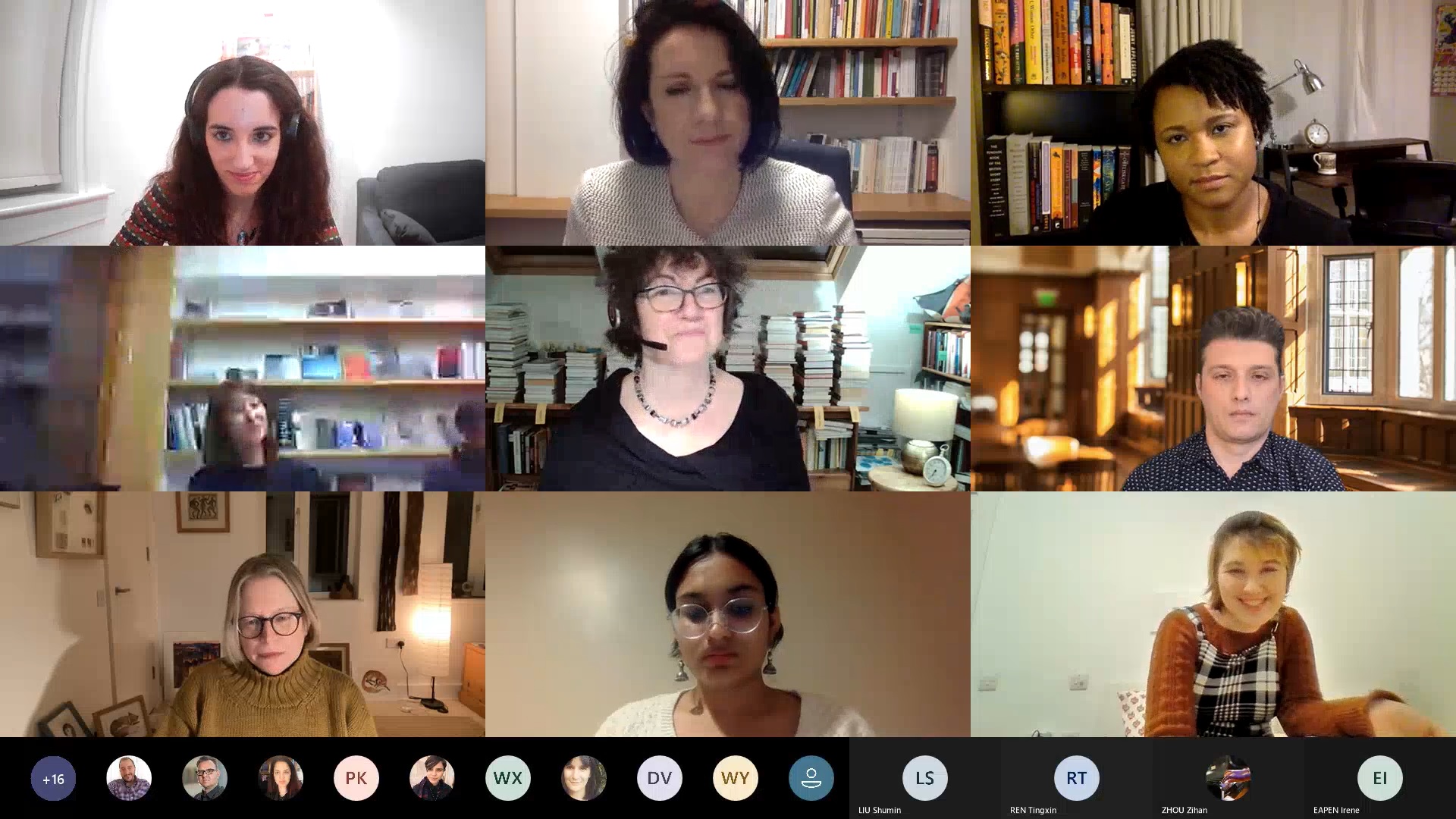 Emanuela Patti will look at “Che cosa sono le nuvole?” (1968), a short film adaptation of Shakespeare’s Othello to discuss Pasolini’s use of intermediality as a decolonisation strategy. In turn, Inma Sánchez-García will explore Jiří Weiss’ “Romeo, Juliet, and Darkness” (1960), a Czechoslovakian adaptation of Romeo and Juliet that was internationally acclaimed upon its release but is now largely forgotten, arguing that the international dimension of Shakespeare on screen still needs sustained attention. By focusing on two non-Anglophone film adaptations of Shakespeare’s plays, this talk will address not only the vitality of intermediality as a method of research, but also how intermedia strategies can be employed as deconstructing tools for political and ideological purposes.
Emanuela Patti will look at “Che cosa sono le nuvole?” (1968), a short film adaptation of Shakespeare’s Othello to discuss Pasolini’s use of intermediality as a decolonisation strategy. In turn, Inma Sánchez-García will explore Jiří Weiss’ “Romeo, Juliet, and Darkness” (1960), a Czechoslovakian adaptation of Romeo and Juliet that was internationally acclaimed upon its release but is now largely forgotten, arguing that the international dimension of Shakespeare on screen still needs sustained attention. By focusing on two non-Anglophone film adaptations of Shakespeare’s plays, this talk will address not only the vitality of intermediality as a method of research, but also how intermedia strategies can be employed as deconstructing tools for political and ideological purposes.
Inaugural MSc Intermediality Guest Lecture: Gulliver’s Travels in the World of Advertising, by Dr Ruth Menzies, Senior Lecturer in English at Aix-Marseille Université (France).
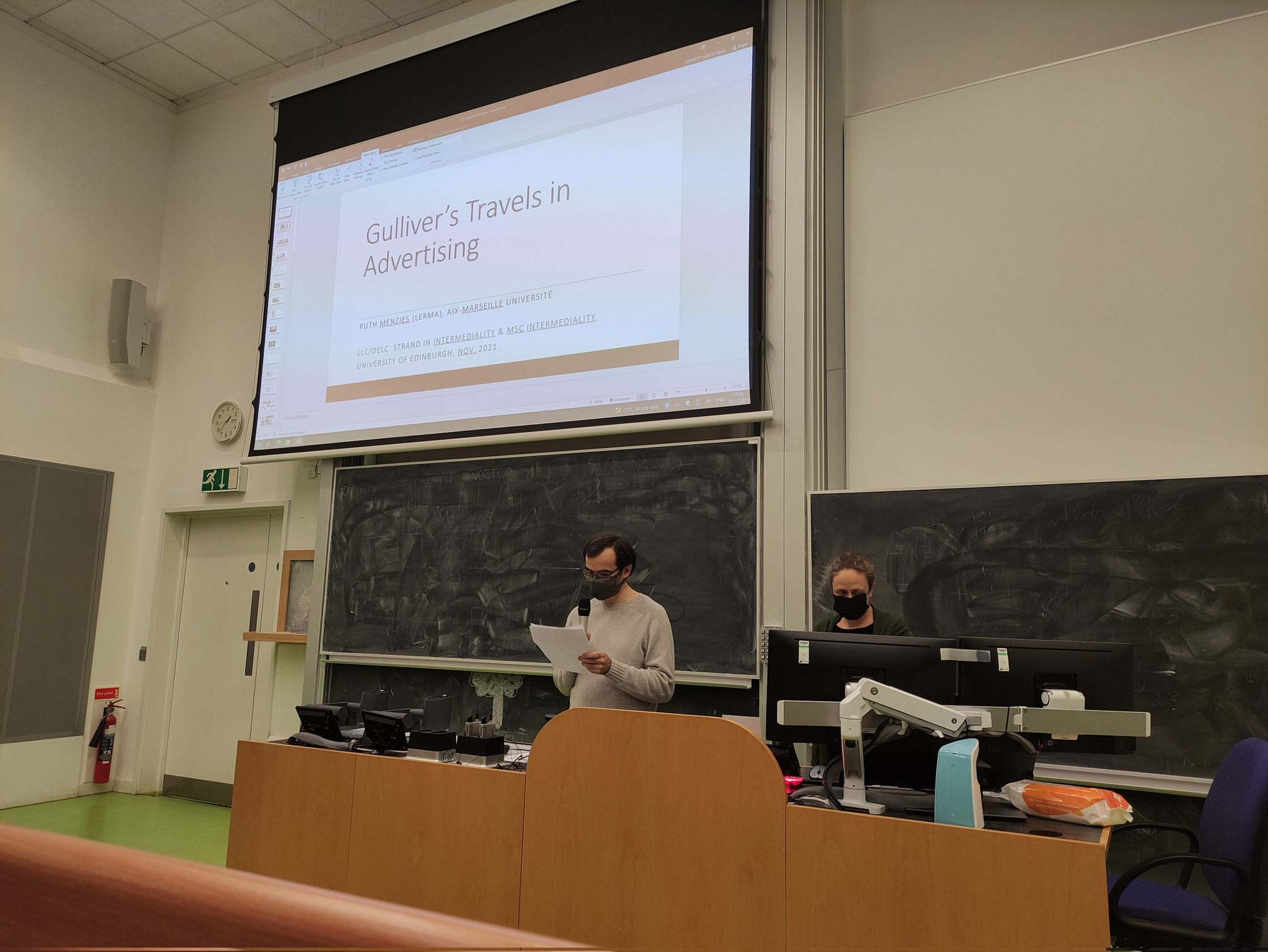
Dr Fabien Arribert-Narce introducing Dr Ruth Menzies, our first guest speaker.
When: Friday 5th November, from 17:10 to 18:00 Where: Appleton Tower, Lecture Theatre 2. EH8 9LE. The University of Edinburgh. Edinburgh, UK. (see map below)
GULLIVER’S TRAVELS IN THE WORLD OF ADVERTISING
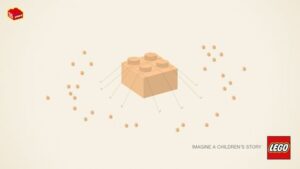 In one of literary history’s more ironic twists, Lemuel Gulliver, a notably unrealistic character whose function in Gulliver’s Travels is that of satiric puppet rather than three-dimensional individual, has entered the collective consciousness and attained mythical status. His longevity extends well beyond the confines of Jonathan Swift’s text, his fame exceeding that of his creator. Writers have regularly appropriated Swift’s mendacious surgeon, whether alluding briefly to him in passing or extensively reworking his travels. More prosaically, over the past decades the name Gulliver has come to adorn travel agencies, business centres, used-car companies and The Economist’s blog about business travel. This paper studies modes of representation of Lemuel Gulliver in advertising campaigns, focussing on the ways in which advertisers select and edit iconic moments from Swift’s text to promote products whose nature and purpose are generally far removed from his universe and ideas. Not unlike Gulliver’s Travels, these advertisements frequently contain multiple layers of often ironic meaning, whose perception and analysis inevitably vary according to the viewer’s knowledge both of the source text and of its modern avatars.
In one of literary history’s more ironic twists, Lemuel Gulliver, a notably unrealistic character whose function in Gulliver’s Travels is that of satiric puppet rather than three-dimensional individual, has entered the collective consciousness and attained mythical status. His longevity extends well beyond the confines of Jonathan Swift’s text, his fame exceeding that of his creator. Writers have regularly appropriated Swift’s mendacious surgeon, whether alluding briefly to him in passing or extensively reworking his travels. More prosaically, over the past decades the name Gulliver has come to adorn travel agencies, business centres, used-car companies and The Economist’s blog about business travel. This paper studies modes of representation of Lemuel Gulliver in advertising campaigns, focussing on the ways in which advertisers select and edit iconic moments from Swift’s text to promote products whose nature and purpose are generally far removed from his universe and ideas. Not unlike Gulliver’s Travels, these advertisements frequently contain multiple layers of often ironic meaning, whose perception and analysis inevitably vary according to the viewer’s knowledge both of the source text and of its modern avatars.
